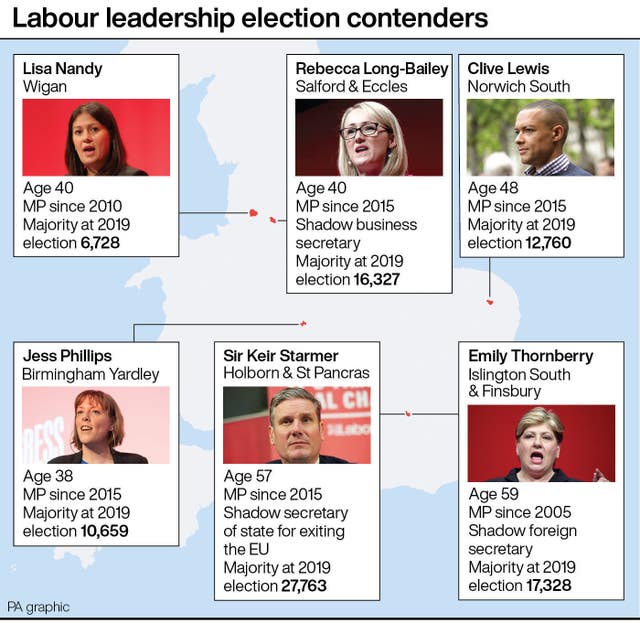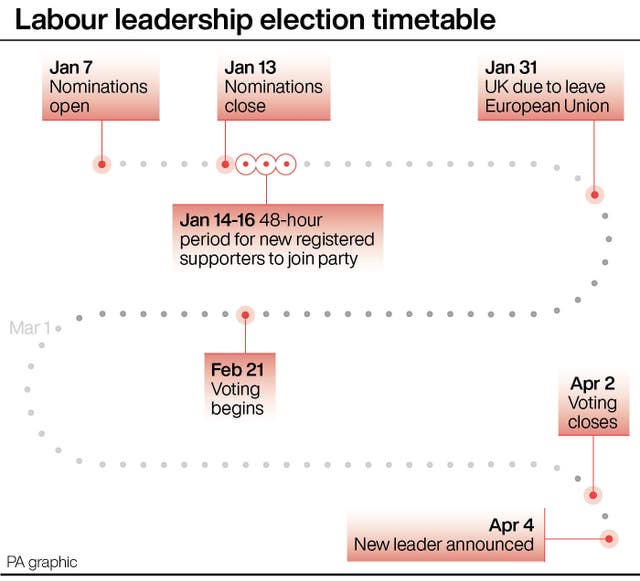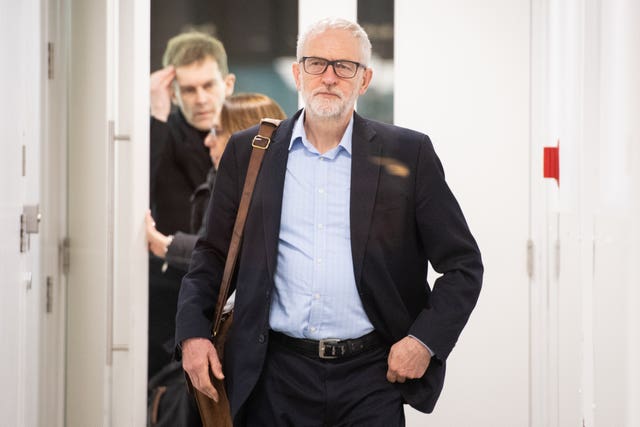
Shadow business secretary Rebecca Long-Bailey has joined the race to become Labour leader, saying the party needs a “proud socialist” to succeed Jeremy Corbyn.
With nominations due to open on Tuesday, Ms Long-Bailey – favourite of the Labour left – said she could be trusted to maintain “our socialist agenda”.
Her comments will be seen as a thinly veiled swipe at shadow Brexit secretary Sir Keir Starmer, who has been keen to stress his left-wing credentials despite being seen to come from a more centrist tradition.
READ MORE: Jess Phillips outlines opposition to second Scottish independence vote
Writing in the Tribune magazine, she said: “Many candidates in the leadership election say they will not return to the triangulation and Tory-lite policies that held our party back before Jeremy.
With the climate crisis spiralling and the far-right on the march, we must regroup urgently for the struggles ahead.
Our task is to build a winning vision of a socialist future.https://t.co/P15RJx7ifI
— Rebecca Long-Bailey (@RLong_Bailey) January 6, 2020
“But we need a leader that can be trusted with our socialist agenda. A leader who is totally committed to the policies and has the political backbone to defend them.
“We need a proud socialist to lead the Labour Party, driven by their principles and an unwavering determination to see democratic socialism in our lifetime.
“For all of these reasons and more, I have decided to stand for election to become the next leader of our party.”
Party chairman Ian Lavery immediately announced he would not be standing and would be backing Ms Long-Bailey.
“We must ensure that we never again are seen to be taking working class communities for granted or to write them off as ignorant or ill-educated,” he said in another apparent jibe at pro-Remain contenders.
Ms Long-Bailey’s announcement came as the party’s ruling National Executive Committee (NEC) set out the timetable for election, with the new leader to be announced at a conference on Saturday April 4.
 (PA Graphics)
(PA Graphics)
The NEC also confirmed that, as in 2016, “registered supporters” will be able to vote if they pay a £25 fee.
A party spokeswoman said there would be a 48-hour window to apply from 5pm Tuesday January 14.
“We are by far the largest political party in the UK with well over half a million members,” the spokeswoman said.
“We want as many of our members and supporters to take part, so it has been designed to be open, fair and democratic.”
READ MORE: Ian Murray launches Labour deputy leader bid
Under the terms of the contest, candidates need to secure the nominations of least 10% (22) of the party’s MPs and MEPs.
Those who succeed will go forward to the second stage where they must get the nominations of 5% of constituency Labour parties or three Labour affiliates – of which at least two must be trade unions – comprising at least 5% of the fully paid-up affiliate membership.
 (PA Graphics)
(PA Graphics)
The closing date for new members to join and be eligible to vote will be January 20 in the postal ballot.
This marks a change from the last election in 2016 when a retrospective cut-off date was set.
Under the timetable set out by the NEC, nominations from MPs and MEPs will open on January 7, closing at 2.30pm on January 13.
The second stage of nominations from constituency parties and affiliates then opens on January 15 and runs to February 14.
The ballot of members and registered supporters opens the following week on February 21, closing at midday on Thursday April 2.
The same rules and timetable will apply to the contest to succeed Tom Watson as deputy leader.
 Jeremy Corbyn leaves the Labour NEC meeting which agreed the timetable for the leadership contest (Dominic Lipinski/PA)
Jeremy Corbyn leaves the Labour NEC meeting which agreed the timetable for the leadership contest (Dominic Lipinski/PA)
In addition to Ms Long-Bailey and Sir Keir, four other candidates have announced they intend to stand for the leadership – frontbenchers Emily Thornberry and Clive Lewis, and backbenchers Jess Phillips and Lisa Nandy.
Former cabinet minister Yvette Cooper has ruled out a leadership bid.
Ms Cooper, who stood against Mr Corbyn in 2015, said: “The scale of Labour’s defeat challenges our whole party not just the next leader.
“I’m not standing for Labour leader this time but I’ll keep fighting for a Labour government.”



Why are you making commenting on The Herald only available to subscribers?
It should have been a safe space for informed debate, somewhere for readers to discuss issues around the biggest stories of the day, but all too often the below the line comments on most websites have become bogged down by off-topic discussions and abuse.
heraldscotland.com is tackling this problem by allowing only subscribers to comment.
We are doing this to improve the experience for our loyal readers and we believe it will reduce the ability of trolls and troublemakers, who occasionally find their way onto our site, to abuse our journalists and readers. We also hope it will help the comments section fulfil its promise as a part of Scotland's conversation with itself.
We are lucky at The Herald. We are read by an informed, educated readership who can add their knowledge and insights to our stories.
That is invaluable.
We are making the subscriber-only change to support our valued readers, who tell us they don't want the site cluttered up with irrelevant comments, untruths and abuse.
In the past, the journalist’s job was to collect and distribute information to the audience. Technology means that readers can shape a discussion. We look forward to hearing from you on heraldscotland.com
Comments & Moderation
Readers’ comments: You are personally liable for the content of any comments you upload to this website, so please act responsibly. We do not pre-moderate or monitor readers’ comments appearing on our websites, but we do post-moderate in response to complaints we receive or otherwise when a potential problem comes to our attention. You can make a complaint by using the ‘report this post’ link . We may then apply our discretion under the user terms to amend or delete comments.
Post moderation is undertaken full-time 9am-6pm on weekdays, and on a part-time basis outwith those hours.
Read the rules hereLast Updated:
Report this comment Cancel